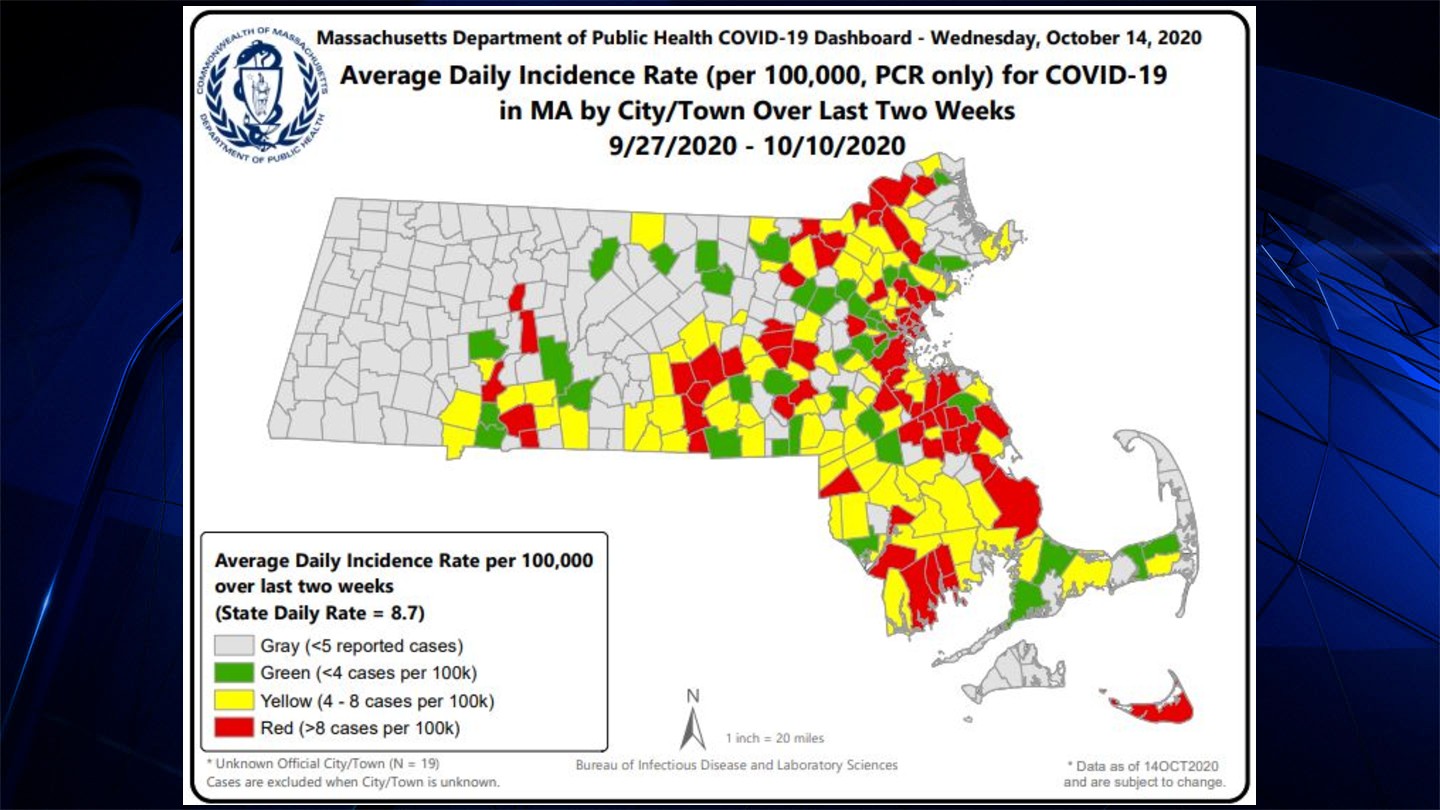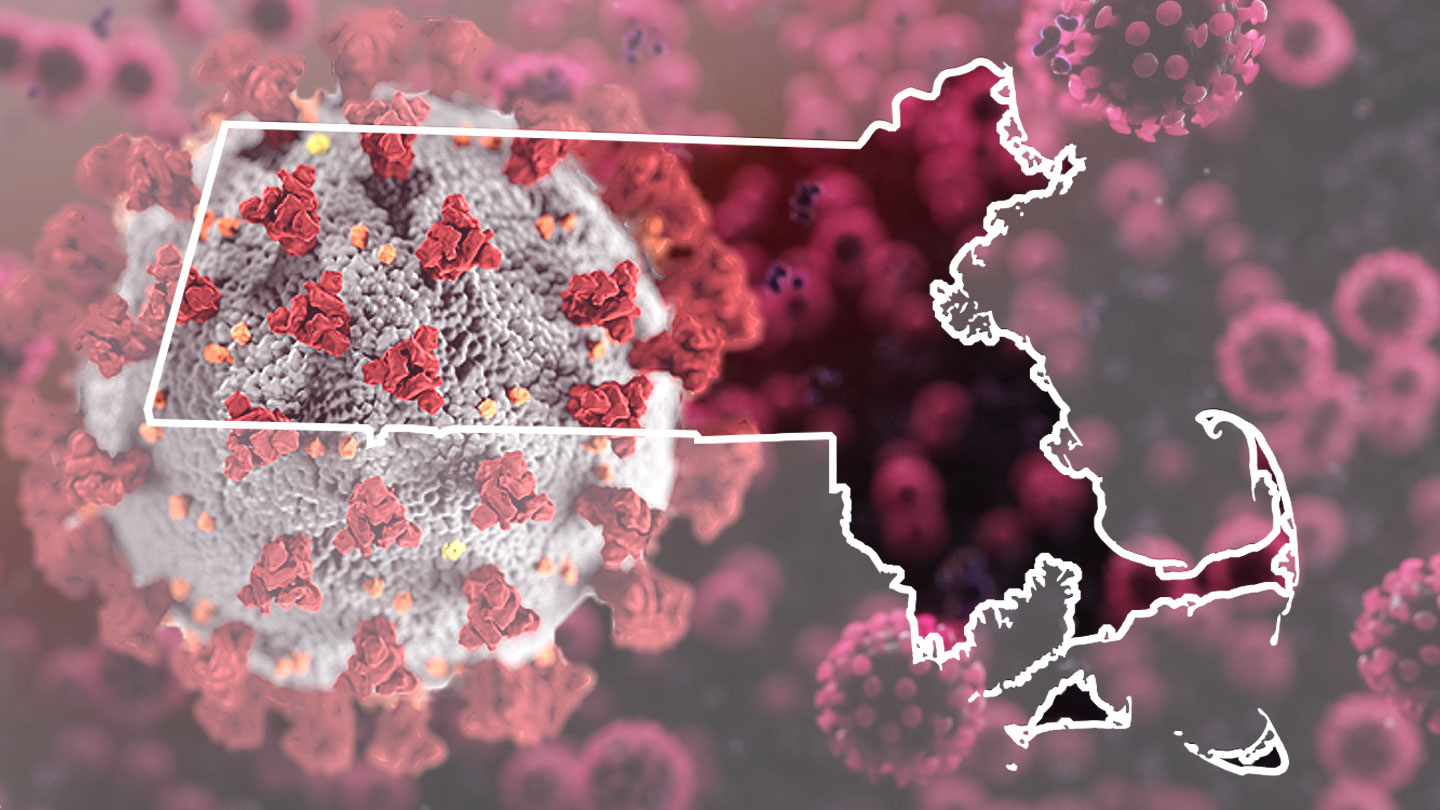New data on isolated outbreaks will show up when health officials release the state's latest coronavirus risk map this week.
The updated color-coded coronavirus hot spot map, which highlights communities with the highest rates of transmission in red, will be included in the state's weekly coronavirus public health report.
State health officials plan to start incorporating coronavirus clusters in locations such as jails, colleges, or nursing homes that have pushed communities into that red zone on an ongoing basis.
But the report will also be moved back from Wednesday, the day on which it has been released for months, to Thursday, officials said Wednesday afternoon, citing the extra work needed to produce the revamped report.
"To accommodate this added analysis, the weekly map and public health report will be published on Thursdays moving forward," a Department of Public Health representative said in a statement.
The update comes as cities and towns complain that their high-risk designation is unfair when these isolated situations drive up coronavirus metrics. In North Andover, officials have maintained the only reason their community is red is because of a COVID outbreak at Merrimack College.
“We went into the red a couple of weeks ago,” said Middleton Town Administrator Andrew Sheehan, “solely as a result of an outbreak at the Middleton jail.”
The new information could impact decisions made by local officials when it comes to in-person learning as school districts seeing spikes handle it in different ways.
“We just need an acknowledgment that there are unique circumstances that apply in one or two communities that don’t apply to the other 351,” Sheehan said.
Despite rising coronavirus case numbers and a high-risk designation, Weymouth Public Schools is pushing forward with its hybrid learning plan. Another city that's considered high-risk, Lowell, shifted from its hybrid learning model to fully remote classes on Monday, citing an uptick in cases over the past three weeks.
Gov. Charlie Baker has said that communities should not react to single incidents and instead make decisions based on three weeks of data.
Earlier this week, the state's education commissioner said that the changes to the map reflects the evolving nature of coronavirus information in the state. He added that it appears fears over schools being “super spreaders” are somewhat unfounded.



